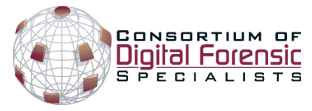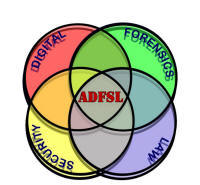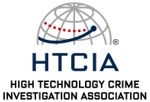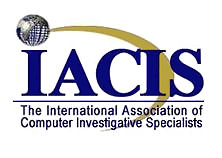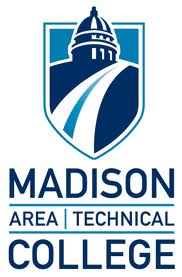How does membership in CDFS benefit me or my organization?
First, CDFS members gain recognition as leaders and stakeholders in shaping the future of this profession because they have a voice in the issues of today and tomorrow. For example, are you aware that there is an international standard for the identification, collection, and preservation of digital evidence under consideration now by ISO/IEC? What about current legislative efforts that impact all forensic sciences in the United States Congress? If you are a digital forensic professional and are not aware of these trends, can you be cross-examined on the basis that you don’t know? If you are not following an established standard, does it affect your credibility with courts and potential clients and employers? Are you aware of current private investigator licensing requirements that impact digital forensic professionals? Don’t you want to have a voice in the outcome of such pending initiatives? It is human nature to become complacent with the status quo when it does not impact one personally and immediately. However, regulation is coming and it will impact you, if it hasn’t already. Join us and control the outcome.
How is CDFS unlike other digital forensics and hi-tech crime organizations?
CDFS will serve the digital forensic community by serving as the umbrella organization for the profession. CDFS was created by representatives of major digital forensic and hi-tech crime organizations for this purpose. In fact, the CDFS Board of Directors is comprised of individuals who hold leadership positions in some of the leading digital forensic and hi-tech crime organizations in the field today. CDFS will not compete with these organizations in the areas of certification, proficiency, education, or training. We also recognize that some organizations have or are developing standards. But if many different organizations have different, competing standards, there are, in fact, no standards at all. Our goal is to bridge the gap between organizations to develop a cohesive standard appropriate to diverse sectors of the profession. Further, our mission is to speak on behalf of digital forensic practitioners to achieve self-regulation by professionals who understand the industry and its needs.
Why was CDFS formed?
Because regulation and oversight of our industry is a reality, and we care about the future of this profession. We recognize the need to unite digital forensic professionals to control this process. This initiative grew from a grassroots volunteer effort to prevent private investigator licensing movements that hurt true digital forensic professionals, thwarted justice and compromised consumers. The licensing authorities of legislatures were concerned about protecting the public. They are wondering what digital forensic professionals will do to align themselves and demonstrate an ability to develop standards. Ours is a relatively new profession and an umbrella organization is a necessary and critical next step in the maturation of digital forensics. CDFS wants to make a difference by becoming this umbrella organization. With your assistance, we can strategically shape the profession in which we thrive.
Why do standards matter?
There are several reasons standards matter. Digital forensic specialists serve in critical roles, including criminal investigations, protecting company assets; securing the interests of sovereign nations and helping to settling civil disputes involving large awards. Justice, employers, and the public rely on digital forensic specialists to be proficient. Moreover, regulators and legislators call for standards and want to know how a competent and ethical digital forensic specialist distinguishes himself or herself from others. Plus, standards provide safe harbor for examiners. For example, if a specialist is engaged to perform an examination in a context that may present a conflict of interest, an ethical standard provides that specialist the guidance he or she needs to work through that sitation. Further, standards help digital forensic organizations. For instance, a certification standard helps certifying organizations demonstrate their value to courts, employers and practitioners interested in sitting for the certification. But none of these standards work unless they are developed cooperatively by practitioners within the industry. Digital forensics is a unique process – different from many other forensic practices. The natural inclination to treat it similarly to all other forensic sciences hurts practitioners. More importantly, the emerging thought that digital forensic specialists should be licensed without any regard to their ability to complete an examination without demonstrated proficiency is reckless.
How will CDFS implement standards?
The process for developing and implementing standards is complex. CDFS will facilitate collaboration and act as a clearinghouse for up-to-date and relevant information. The process begins with cooperation. CDFS will proactively reach out to organizations and individuals that have or are considering developing a standard that impacts digital forensic professionals. Next, CDFS will work with its members to prioritize the subject area for the standard. From there, a standing committee in CDFS will be tasked with establishing a blueprint and timeline for the desired standard. If necessary, an ad hoc subcommittee can be established for the particular standard. After initial work product on the standard is complete, members will be invited to take part in the development of the standard through open comment and debate.
How will CDFS spend its’ money?
CDFS is a not-for-profit organization. Our Board, committee leaders, founders, and representatives are dedicated volunteers who have worked exhaustively to build and support this organization. Income will be used to establish and maintain our collaborative efforts and cover basic operating costs. Collaborative standards development requires software, conference calls, and meetings. These projects – and future projects – will be funded with membership income. Your CDFS membership dues are an investment in the future – both your own and that of this profession.
What does CDFS plan to accomplish in its first 18 months?
CDFS has an aggressive agenda for its first 18 months of operation. The first priority of CDFS will be to identify and research the issues that affect the practice of digital forensics including standards development and licensing initiatives. CDFS will then leverage its membership to shape the standards of this profession. CDFS will work cooperatively on the development of a cohesive ethics standard and code of professional conduct. CDFS will develop a listserv dedicated to sharing and discussing current information on digital forensic topics. But none of this can happen unless we reach out to other professional organizations and individuals for membership. The top priority of CDFS is to build membership by reaching out to digital forensic professionals across the globe to give them a voice through this umbrella organization to shape the future of this profession.
